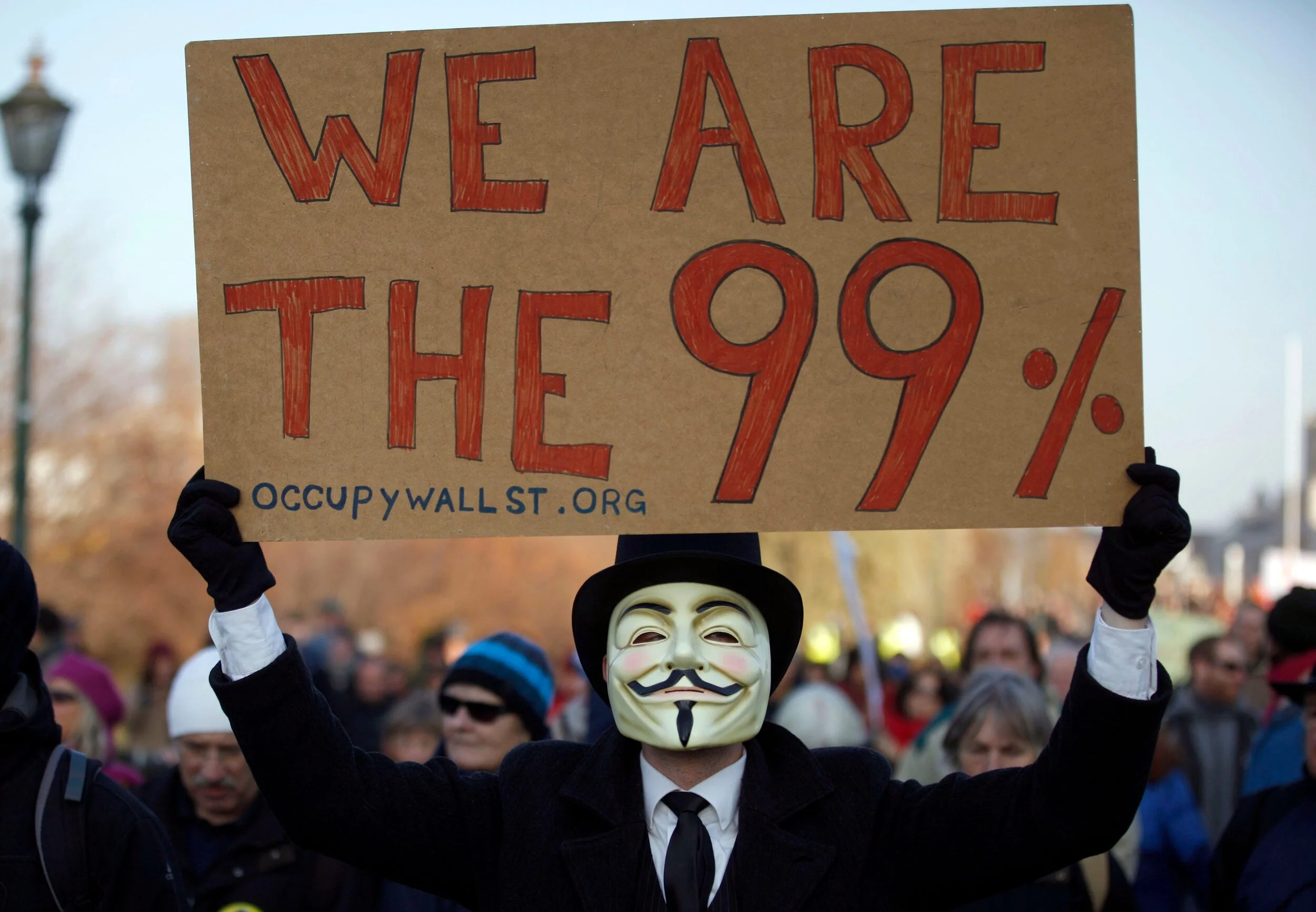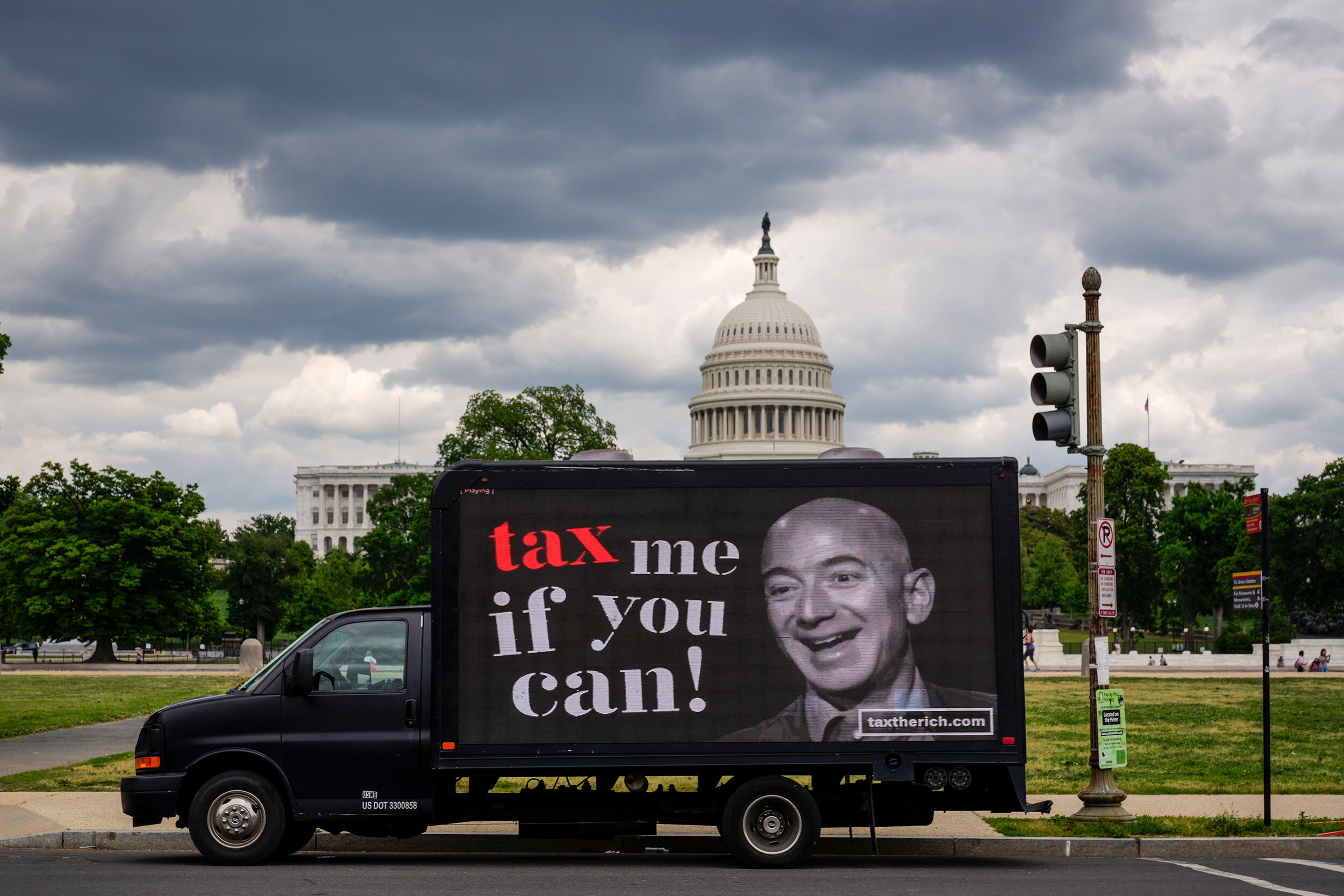In our increasingly divided world, there’s one thing we can all agree on.
No-one likes paying taxes.
On June 8th ProPublica in the US highlighted just how much America’s wealthiest didn’t like paying taxes. Jeff Bezos, Elon Musk and Warren Buffett had years of paying zero federal income tax. The article goes on to say that between 2014-2018 the wealthiest 25 Americans grew their collective wealth by US$401 billion and paid just US$13.6 billion – or 3.4% - in taxes.
If your jaw just dropped remembering your own Tax Returns for 2020, consider this.
During the pandemic, Elon Musk – the King of Twitter, Dodgecoin, Saturday Night Live and an electric car company – added US$144 billion to his wealth. Jeff Bezos – Retailer and avid Space Tourist – added US$86 billion. That many zeros can be confusing so this might help. If the average US Household spent US$1K every second, they would spend their annual income in under 90 seconds. 88.7 seconds to be exact. Jeff Bezos would take 23,889 and Elon Musk 40,000 hoursat the same spending rate to get through their newly gained wealth.
While this level of Tech Titan tax avoidance generates scads of blog posts, podcasts and angry talking heads on the TV, even average folks seek to reduce their tax “burden.” That’s because we generally agree with the dictionary definition of a tax as “n: a strain or heavy demand”
A tax is something that dampens, impedes or holds us back.
Just like a poorly functioning or uncommitted culture.
Ironically, that same poorly functioning culture is a self-imposed tax we levy on our own organizations.
When our people are mired in layers of self-imposed bureaucracy, oversight and approvals, we are taxing their creativity and natural ingenuity.
When we impose internal hierarchies, labyrinths and mazes of ambiguous accountability, we place a strain and a heavy demand on the agility we so desperately cry out for in op-eds and PR pieces.
When we codify a belief that only the Alphabet titles – C, S, V, P – understand how a business functions, how it grows and where the Achilles Heel really is, we are taxing the people at the point of customer contact and placing a herculean strain on their ability to be the type of customer-centric organization we aspire to.
Decades of global research, a legion of vibrant case studies and libraries of ground-breaking work by folks like Gary Hamel, Adam Grant and Tom Peters and others** highlighting the follies of these taxing management behaviours.
And yet they persist.
Here’s another thing.
Governments levy taxes so they can raise funds to pay for all the things none of us can (or likely would) pay for if left to our own devices. Economists call those “externalities” but critical things like bridges, roads, national defence, healthcare (in Canada & UK), educating our kids, taking care of our seniors and our marginalized are all paid for by taxes.
So, if there’s a sad irony in the fact that the taxing burdens inside our cultures are self-imposed, I’m increasingly concerned about the other impact of these taxes.
A more troubling and more insidious impact.
That’s the negative societal impact those taxing cultures create.
In the same period Bezos (and others) was being hammered for tax avoidance, The New York Times was writing an equally scathing expose of the Amazon culture and how it fared during the same period that added US$86billion to his wealth. Entitled “The Amazon That Customers Don’t See” it found that an organization famously capable of the most intricate logistics and supply-chain operations was sadly deficient in even the most basic of human resources operations. An operation so data-obsessed that when productivity flagged the humans, not the system, was deemed responsible and they were summarily let go. The report goes on to say that, on an annualized basis, Amazon was losing 150% of its hourly associates. Let that sink in for a moment.
This particular quote struck me as reflective of that huge societal impact these taxing cultures have:
“It is very important that area managers understand that associates are more than just numbers,” an employee wrote on JFK8’s internal feedback board last fall, adding: “We are human beings. We are not tools used to make their daily/weekly goals and rates.”
The lesson here?
When we tax the creativity, purpose and autonomy of our people we dangerously deplete their reserves of self-confidence, self-belief and self-worth.
When our hierarchies and bureaucracies remove the ability of individuals to derive meaning from their labours and create work that motivates and stimulates them, we’ve created an emotional burden that stifles their soul.
This isn’t Pollyanna poppy-cock, its validated and well-understood psychology for those who have built high-performing teams.
It’s certainly not Pollyanna for Barry-Wehmiller, a multi-billion-dollar organization that has made over 100 acquisitions in its history and posted a 14% share point value gain in ’20-’21. Here’s how their CEO Bob Chapman sums up their ethos*:
“We are going to measure success by the way we touch the lives of people. All the people: our team members, our customers, our vendors, our bankers. For every action we take, we need to understand the impact it has on all the people we touch. If every business did that, the world would be a much better place”
Ultimately, these are deliberate choices we make as leaders.
We choose to avoid taxes despite knowing that the roads and global infrastructure on which our business runs (and our wealth grows) needs those taxes to remain robust.
We choose to create and nurture cultures that burden and tax our people despite knowing that without their full and unfettered commitment, our businesses will falter and fail.
Interestingly, in his final letter to shareholders when he stepped down as CEO, Jeff Bezos made an addition to the value proposition that built Amazon and created his fame and enormous fortune.
He wrote that, in addition to being Earth’s Most Customer-Centric Company, Amazon was now going to commit to becoming Earth’s Best Employer.
If they avoid that commitment, that’ll be truly taxing.
*Page 54 “Everybody Matters” Bob Chapman & Raj Sisodia
** These are set of books/authors that highlight the Art of the Possible when we’re not taxing our people and burdening our organization’s potential
Adam Grant – “Think Again”
Gary Hamel – “Humanocracy”
Tom Peters – “The Excellence Dividend”
Stan Slap – “Bury My Heart At Conference Room B”
Dan Pontefract – “Lead. Care. Win”
Yvon Chouinard – Let My People Go Surfing” (The Patagonia Story)


